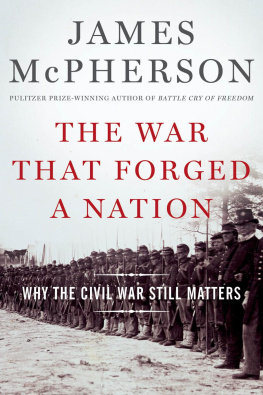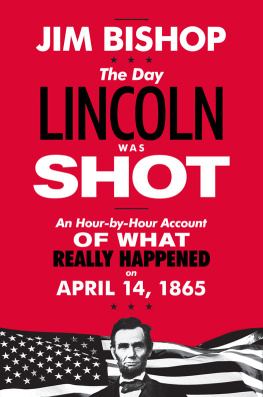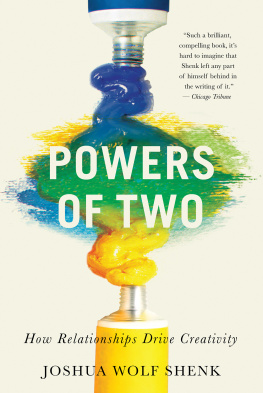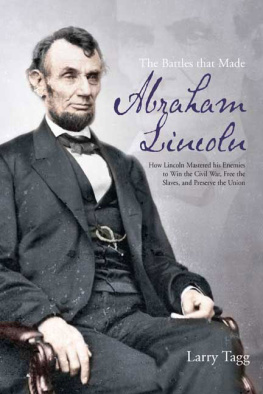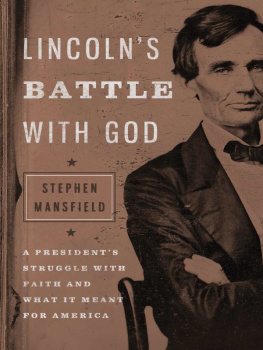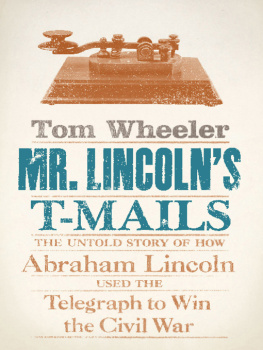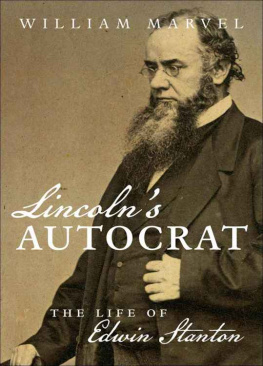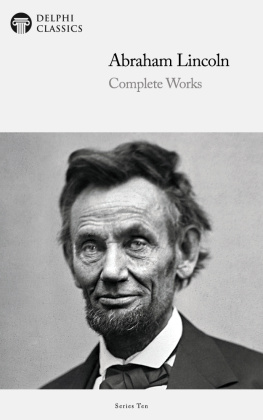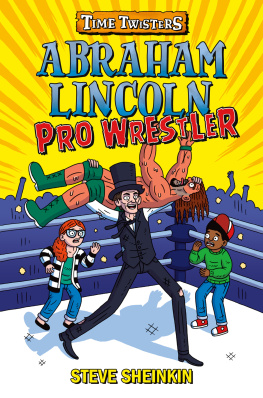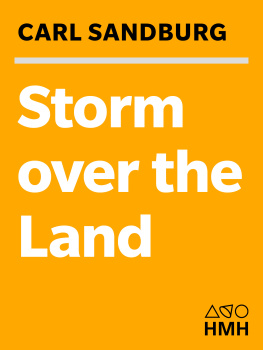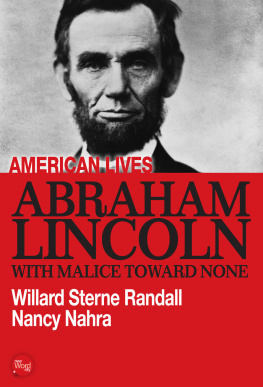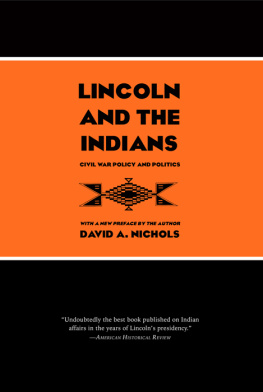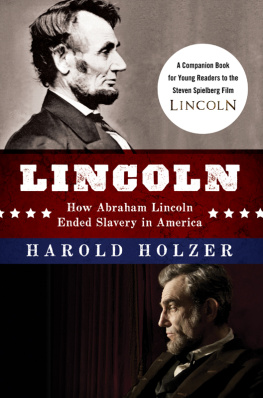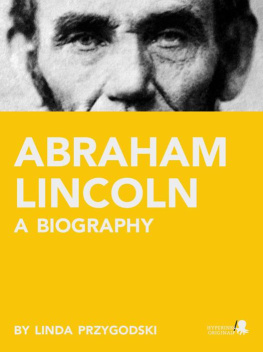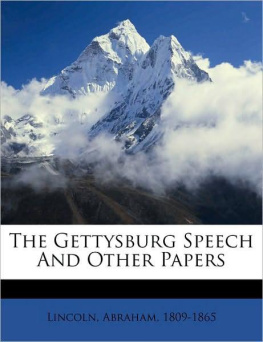Lincoln Abraham - The war that forged a nation: why the Civil War still matters
Here you can read online Lincoln Abraham - The war that forged a nation: why the Civil War still matters full text of the book (entire story) in english for free. Download pdf and epub, get meaning, cover and reviews about this ebook. City: Kalifornien;Mexiko;United States;USA, year: 2017;2015, publisher: Oxford University Press, genre: Science. Description of the work, (preface) as well as reviews are available. Best literature library LitArk.com created for fans of good reading and offers a wide selection of genres:
Romance novel
Science fiction
Adventure
Detective
Science
History
Home and family
Prose
Art
Politics
Computer
Non-fiction
Religion
Business
Children
Humor
Choose a favorite category and find really read worthwhile books. Enjoy immersion in the world of imagination, feel the emotions of the characters or learn something new for yourself, make an fascinating discovery.
- Book:The war that forged a nation: why the Civil War still matters
- Author:
- Publisher:Oxford University Press
- Genre:
- Year:2017;2015
- City:Kalifornien;Mexiko;United States;USA
- Rating:3 / 5
- Favourites:Add to favourites
- Your mark:
- 60
- 1
- 2
- 3
- 4
- 5
The war that forged a nation: why the Civil War still matters: summary, description and annotation
We offer to read an annotation, description, summary or preface (depends on what the author of the book "The war that forged a nation: why the Civil War still matters" wrote himself). If you haven't found the necessary information about the book — write in the comments, we will try to find it.
The war that forged a nation: why the Civil War still matters — read online for free the complete book (whole text) full work
Below is the text of the book, divided by pages. System saving the place of the last page read, allows you to conveniently read the book "The war that forged a nation: why the Civil War still matters" online for free, without having to search again every time where you left off. Put a bookmark, and you can go to the page where you finished reading at any time.
Font size:
Interval:
Bookmark:


Oxford University Press is a department of the University of Oxford. It furthers the Universitys objective of excellence in research, scholarship, and education by publishing worldwide.
Oxford New York Auckland Cape Town Dar es Salaam Hong Kong Karachi Kuala Lumpur Madrid Melbourne Mexico City Nairobi New Delhi Shanghai Taipei Toronto
With offices in Argentina Austria Brazil Chile Czech Republic France Greece Guatemala Hungary Italy Japan Poland Portugal Singapore South Korea Switzerland Thailand Turkey Ukraine Vietnam
Oxford is a registered trade mark of Oxford University Press in the UK and in certain other countries.
Published in the United States of America by Oxford University Press 198 Madison Avenue, New York, NY 10016
James McPherson 2015
Title page image: The Hawkins Brothers, Captain Charles A. (born 1841) and Sergeant John M. (born 1843), Co. E., 38th Regt Georgia Vol. Infantry. Ambrotype by unknown photographer. David Wynn Vaughan Collection.
All rights reserved. No part of this publication may be reproduced, stored in a retrieval system, or transmitted, in any form or by any means, without the prior permission in writing of Oxford University Press, or as expressly permitted by law, by license, or under terms agreed with the appropriate reproduction rights organization. Inquiries concerning reproduction outside the scope of the above should be sent to the Rights Department, Oxford University Press, at the address above.
You must not circulate this work in any other form, and you must impose this same condition on any acquirer.
Library of Congress Cataloging-in-Publication Data
McPherson, James M.
The war that forged a nation : why the Civil War still matters / James McPherson.
pages cm
Includes bibliographical references and index.
ISBN 9780199375776 (hardback)
ebook ISBN 9780199375790
1. United StatesHistoryCivil War, 18611865Influence.
2. United StatesHistoryCivil War, 18611865Psychological aspects.
3. United StatesHistoryCivil War, 18611865Social aspects.
4. War and societyUnited StatesHistory.
5. Social changeUnited StatesHistory.
6. National characteristics, AmericanHistory. I. Title.
E468.9.M19 2015
973.7'1dc23 2014018008
1 3 5 7 9 8 6 4 2
Printed in the United States of America
on acid-free paper
More than 140 years ago, Mark Twain observed that the Civil War, which had recently ended, uprooted institutions that were centuries old, changed the politics of a people, transformed the social life of half the country, and wrought so profoundly upon the entire national character that the influence cannot be measured short of two or three generations.
Five generations have passed, and we are still trying to measure that influence. The long shadow cast by the Civil War continues to affect us today. More Americans died in that conflict than in all the other wars this country has fought combined, right through the latest casualty reports from Afghanistan. Several new books about Abraham Lincoln and Jefferson Davis, and the movie Lincoln, have offered important insights about presidential leadership in a time of crisis and have raised questions about the political and constitutional constraints on executive powers. The film Twelve Years a Slave powerfully dramatized the pain and cruelty of an institution that lay at the root of American society and brought on the war. The close relationship between the abolition of slavery and the subsequent evolution of race relations in the United States has received a great deal of attention, especially since the election of Barack Obama as president.
Since the publication of my first book fifty years ago, I have sought to dissect the Civil Wars impact at several levels and in several dimensions. The twelve chapters in this volume represent a continuation of that effort. One of the essays is published here for the first time (). The others have appeared in various venues and formats during the past eight years, but several have been substantially revised and updated. Each chapter is complete in itself and can be read independently of the others, but I have also tried to fit them together in a cohesive pattern so that they can be read consecutively from beginning to end. Although the essays are grounded in many years of reading and research, they are more interpretive than monographic, and I have therefore confined the endnotes mainly to citations for quotations. My interpretations are sometimes stated strongly, and some of them may disagree with the readers own judgments. I welcome disagreement and dialogue, for that is how scholarship and understanding advance.
James McPherson
Princeton, New Jersey
was first published in The Making of Peace: Rulers, States, and the Aftermath of War, edited by Williamson Murray and Jim Lacey (Cambridge: Cambridge University Press, 2009). I am grateful to these three publishers for permission to reprint these essays.
Even before the many conferences, commemorations, books, exhibits, and other public events associated with the bicentennial of Abraham Lincolns birth in 2009 and the sesquicentennial of the Civil War from 2011 to 2015, that war was the most popular historical subject in many parts of the United States. In 1987 the historian at the Vicksburg National Military Park declared that Americans just cant get enough of the Civil War. A bookstore owner in Falls Church, Virginia, said a year or so later that for the last two years Civil War books have been flying out of here. Its not [just] the buffs who buy; its the general public, from high school kids to retired people. In 1990 some thirty million viewers watched the eleven hours of television documentary produced by Ken Burns, and rebroadcasts in the past two decades have lifted that number to at least fifty million in the United States and abroad. Civil War books are the leading sellers for the History Book Club. An estimated two hundred Civil War Round Tables meet monthly to listen to lectures and discuss the war. Thousands of Americans (and even some foreigners) are Civil War reenactors who fight mock battles every year before thousands of spectators at or near where they took place 150 years ago.
What accounts for this intense interest in the fratricidal conflict that almost tore the country apart? First, perhaps, was the sheer size of that conflict, fought not in some foreign land, as most American wars have been, but on battlefields from Pennsylvania to New Mexico and from Florida to Kansas, hallowed ground that Americans can visit today. Then there is the drama and tragedy of the wars human costsome 750,000 soldiers plus an unknown number of civilians who lost their lives in the war, according to the latest research. To illustrate the immensity of that figure, it equals 2.4 percent of the American population in 1860. If 2.4 percent of Americans were to be killed in a war fought today, the number of war dead would be almost 7.5 million. Or to take another statistic: 23,000 Union and Confederate soldiers were killed, wounded, or missing in a single day, at the Battle of Antietam on September 17, 1862. This figure was nearly four times the number of American casualties on D-day, June 6, 1944. The human cost of the Civil War cast a long shadow forward in our history, and continues to horrify us but also solemnly to impress us 150 years later.
Font size:
Interval:
Bookmark:
Similar books «The war that forged a nation: why the Civil War still matters»
Look at similar books to The war that forged a nation: why the Civil War still matters. We have selected literature similar in name and meaning in the hope of providing readers with more options to find new, interesting, not yet read works.
Discussion, reviews of the book The war that forged a nation: why the Civil War still matters and just readers' own opinions. Leave your comments, write what you think about the work, its meaning or the main characters. Specify what exactly you liked and what you didn't like, and why you think so.

